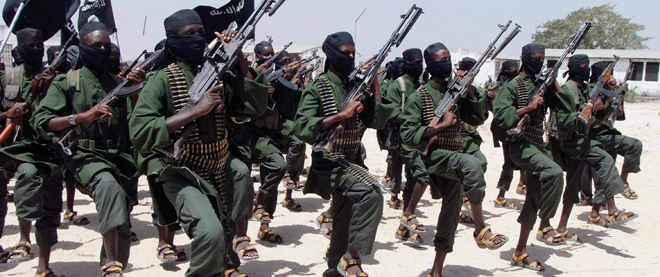Denying both famine and aid
The drought in Somalia has revealed cracks in al-Shabaab’s tenuous and brutal control over the region
Share

Even with evidence that 29,000 children have died in the last three months, al-Shabaab, the al-Qaeda-linked Islamist militant group controlling much of Somalia, continues to deny there is any famine in the region at all. In fact, they had responded to the famine by banning international aid groups—whom they accuse of overblowing the scale of the disaster—from entering the worst-afflicted regions, and are actively preventing refugees from trying to reach relief centres. They are, however, using hunger to recruit desperate Somalis into their fold.
Mark Sedra, a senior fellow at the Centre for International Governance Innovation in Waterloo, Ont., told Maclean’s they represent “one of the most distinct threats in East Africa.” They gained control of Somalia’s southern region in 2006 by waging an insurgency against the weak transitional government and its Ethiopian backers, earning them a spot on the U.S. list of foreign terrorist organizations; during last year’s World Cup, they claimed responsibility for a bombing attack in Kampala, Uganda, that killed 80 people.
While they enjoyed some support before the famine for restoring a degree of civil order, the politically disparate organization is beginning to show rifts; many of its leaders, in fact, fear the crisis is revealing the group’s fragility. But that doesn’t mean the threat is diminishing. “Al-Shabaab is now much weaker,” Rashid Abdi, an analyst with the Brussels-based International Crisis Group told France 24, “but also more dangerous because their backs are against the wall.”